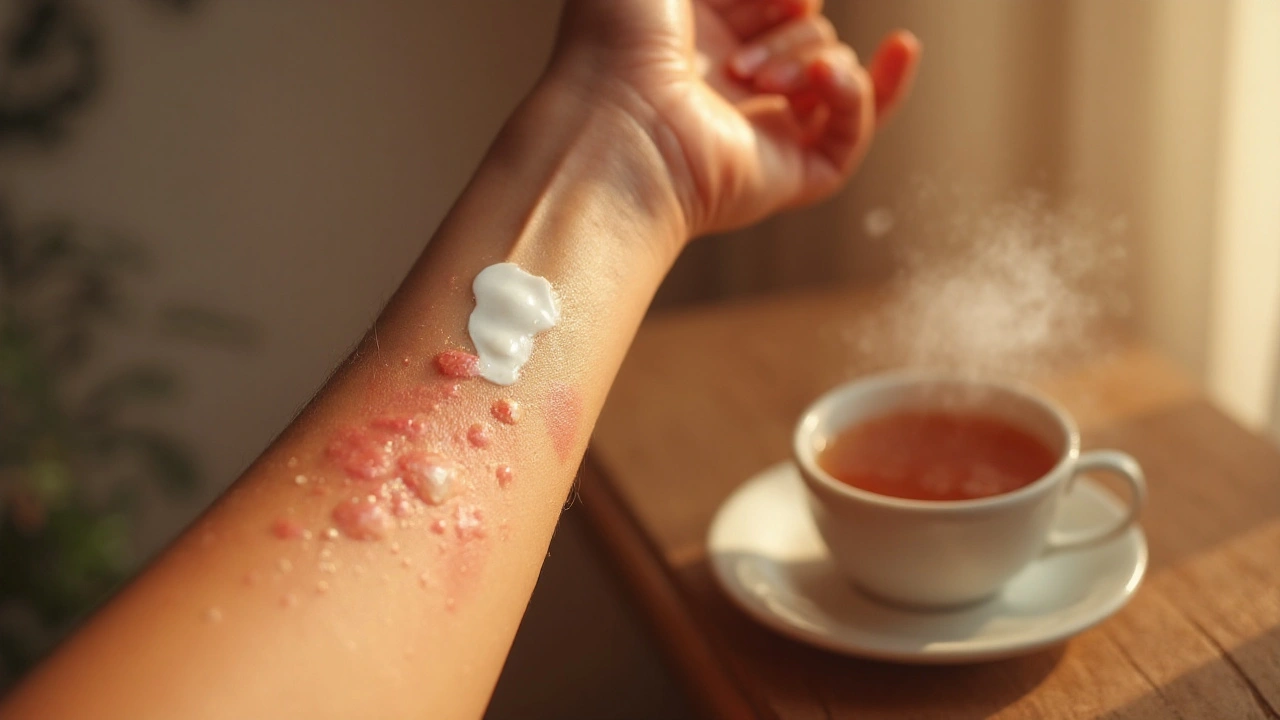If you’re tired of endless itching and red patches, you’re not alone. Eczema (atopic dermatitis) affects millions, and the good news is there are plenty of ways to calm it down without endless doctor trips.
The number‑one rule is to keep skin hydrated. Choose a fragrance‑free cream or ointment that contains ceramides or petrolatum. Apply it right after a shower while the skin is still damp – that traps water and builds a protective barrier. If you notice cracks or severe dryness, switch to an ointment (like Vaseline) for extra sealing power.
When moisturizers aren’t enough, over‑the‑counter (OTC) hydrocortisone cream can reduce mild inflammation. Use a 1% formula for a few days, then step back to avoid thinning the skin. Antihistamines such as cetirizine can calm nighttime itching, letting you sleep better. Remember, these are short‑term tools – they won’t replace a prescription if the flare is strong.
Prescription treatments are the next step if OTCs fail. Low‑potency steroids (like hydrocortisone 2.5% or triamcinolone) are common first‑line choices. For stubborn patches, doctors may prescribe medium‑potency steroids or a calcineurin inhibitor (tacrolimus or pimecrolimus) that works without the skin‑thinning side effect.
Beyond drugs, lifestyle tweaks can make a huge difference. Identify triggers – be it dust mites, pet dander, certain fabrics, or harsh soaps – and eliminate or reduce exposure. Warm (not hot) showers, gentle cleansers, and a humidifier in dry months all help keep the skin barrier intact.
Some people find relief with natural options. Colloidal oatmeal baths, coconut oil, or diluted apple cider vinegar rinses can soothe itching, but test a small area first to avoid irritation. If you’re interested in herbal or Ayurvedic remedies, read our comparison guides on safe herbal supplements before adding anything new.
When to see a professional? If you notice rapid spread, oozing, signs of infection (pus, fever, increased pain), or if OTC and mild prescription options aren’t improving the rash after two weeks, book an appointment. A dermatologist can tailor a treatment plan that may include phototherapy, systemic meds, or newer biologic drugs.
At Benzova Pharma Guide you’ll find practical articles on every step of eczema care – from choosing the right moisturizer to understanding prescription steroids and exploring complementary therapies. Use the search bar to find specific product reviews, dosage tips, and safety warnings that match your needs.
Bottom line: keep skin moisturized, use OTC meds wisely, know when to step up to a prescription, and adjust your environment to cut down triggers. With consistent care, most flare‑ups become manageable rather than a constant battle.

Learn why eczema causes skin pain and get practical steps, treatments and lifestyle tips to relieve discomfort and keep flare‑ups under control.
Read More